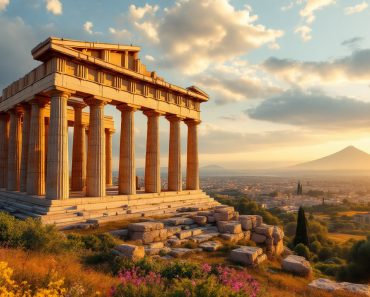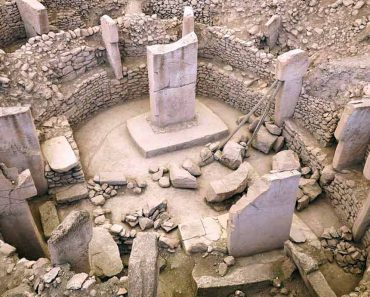Published on
September 18, 2025
Greece remains to prioritize culture at the forefront of its tourism campaign, highlighting its cultural sites and artistic works in order to entice foreign travelers. The 70th anniversary of Athens Epidaurus Festival (AEF) is a characteristic example of how Greece utilizes its cultural legacy in order to generate more tourists and stimulate the economy. The anniversary ceremony, which took place at the Roman Agora on September 16, 2025, put special focus on the role of cultural tourism as a main facilitator for the nation’s tourism development and its global image as a cultural tourism destination.
Honoring Maria Callas and Greece’s Rich Musical Legacy
The Athens Epidaurus Festival, which has been a cornerstone of Greece’s cultural calendar, honored the legacy of Maria Callas, the renowned Greek soprano, marking 48 years since her passing. Her 1961 performance of Medea in Cherubini’s opera at the Ancient Theater of Epidaurus is a defining moment in Greece’s cultural history, helping establish the country as a leading destination for world-class performances.
At the anniversary event, the performance was revived by Greek soprano Christina Poulitsi and the Symphonic Orchestra of ERT. This tribute not only celebrated Callas’ remarkable career but also underscored the important role of performing arts in Greece’s ongoing tourism strategy. The revival of such iconic performances helps preserve cultural heritage while promoting Greece as a top destination for music tourism.
The Role of the Roman Agora in Showcasing Greece’s Cultural Wealth
Held at the Roman Agora, one of Athens’ most important historical sites, the anniversary event highlighted the link between Greece’s ancient past and its contemporary artistic expression. The venue, located beneath the Acropolis, is a testament to Greece’s enduring relationship with art and history. By choosing this location, the event showcased Greece’s ability to integrate historical landmarks with modern-day artistic performances, reinforcing the country’s position as a leader in cultural tourism.
The choice of the Roman Agora symbolizes the continuity of Greek heritage, bridging the gap between ancient and modern, and making it an iconic destination for tourists interested in historical tourism and cultural exploration.
Expanding Greece’s Tourism Offerings Through Cultural Diplomacy
The Athens Epidaurus Festival plays an essential role in promoting cultural diplomacy by connecting Greece with the international community. Minister Olga Kefalogianni emphasized that the event’s focus on cultural exchange strengthens Greece’s relationships with other countries and promotes mutual understanding. Through festivals, international artists and tourists can engage with Greek culture, enhancing the country’s global appeal.
This commitment to cultural diplomacy aligns with Greece’s strategy to use tourism as a tool for building stronger international relations, fostering greater collaboration in arts, education, and trade. The event also serves as a platform for cultural tourism, where travelers can immerse themselves in Greece’s artistic heritage while exploring contemporary works.
Promoting Sustainable Tourism and Economic Development
Greece is focusing on sustainable tourism as a critical part of its growth strategy, ensuring that the country’s natural resources, cultural assets, and historical sites are preserved for future generations. The anniversary of the Athens Epidaurus Festival also emphasized how cultural tourism can be a catalyst for sustainable economic development. By promoting eco-friendly practices and responsible tourism, Greece aims to attract tourists who are increasingly seeking destinations that offer not only cultural enrichment but also sustainable travel options.
Sustainable tourism practices, such as carbon reduction, eco-friendly accommodations, and sustainable transportation, are key to maintaining Greece’s tourism industry while protecting the natural environment and cultural heritage. These efforts ensure that cultural tourism remains a long-term pillar of the country’s economic growth.
Creating Opportunities for Regional and International Tourism
Greece’s emphasis on cultural tourism is also driving regional tourism growth, with an increasing number of European and international visitors seeking out authentic cultural experiences. As Greece continues to host prominent events like the Athens Epidaurus Festival, the country strengthens its position as a leading cultural tourism destination in Europe.
The event also highlights the importance of regional tourism cooperation, as Greece looks to attract tourists from neighboring Mediterranean countries, as well as Asia, North America, and the Middle East. By fostering greater cultural exchanges and promoting tourism as a way to experience both the past and present, Greece is becoming an attractive destination for cultural tourism and international visitors.
Increasing Global Awareness of Greece’s Artistic Achievements
Greece’s global tourism promotion focuses not only on history and archaeology but also on its modern artistic achievements. Events like the Athens Epidaurus Festival contribute to the global visibility of Greek arts—from classical music and theater to modern dance and visual arts. By showcasing Greek talent and global collaborations, these festivals make Greek culture accessible to international audiences, reinforcing the country’s role as a cultural powerhouse.
By attracting international tourists to experience the best of Greek arts and performing arts, Greece is positioning itself as a leader in the global cultural tourism market.
Strengthening Greece’s Global Tourism Brand
The Athens Epidaurus Festival anniversary was not only about commemorating previous success but also about shaping the future of Greece’s tourism industry. By presenting cultural gems, encouraging sustainable tourism, and developing international ties, Greece is further consolidating its position as a leading destination for cultural tourism. The emphasis on heritage and contemporary culture, blended with sustainable development initiatives, makes Greece an attractive destination for culturally aware travelers in search of experiential tourism.







